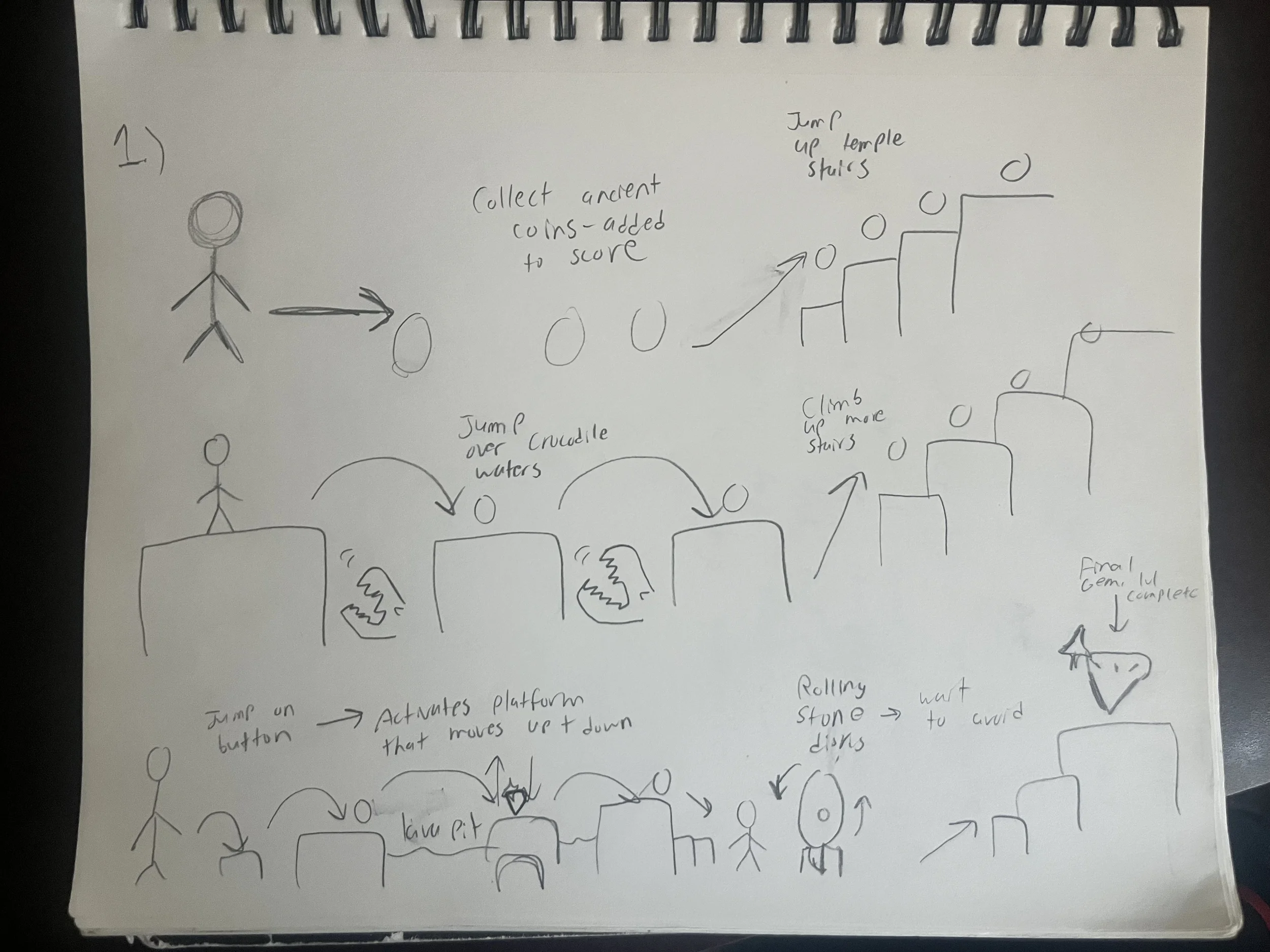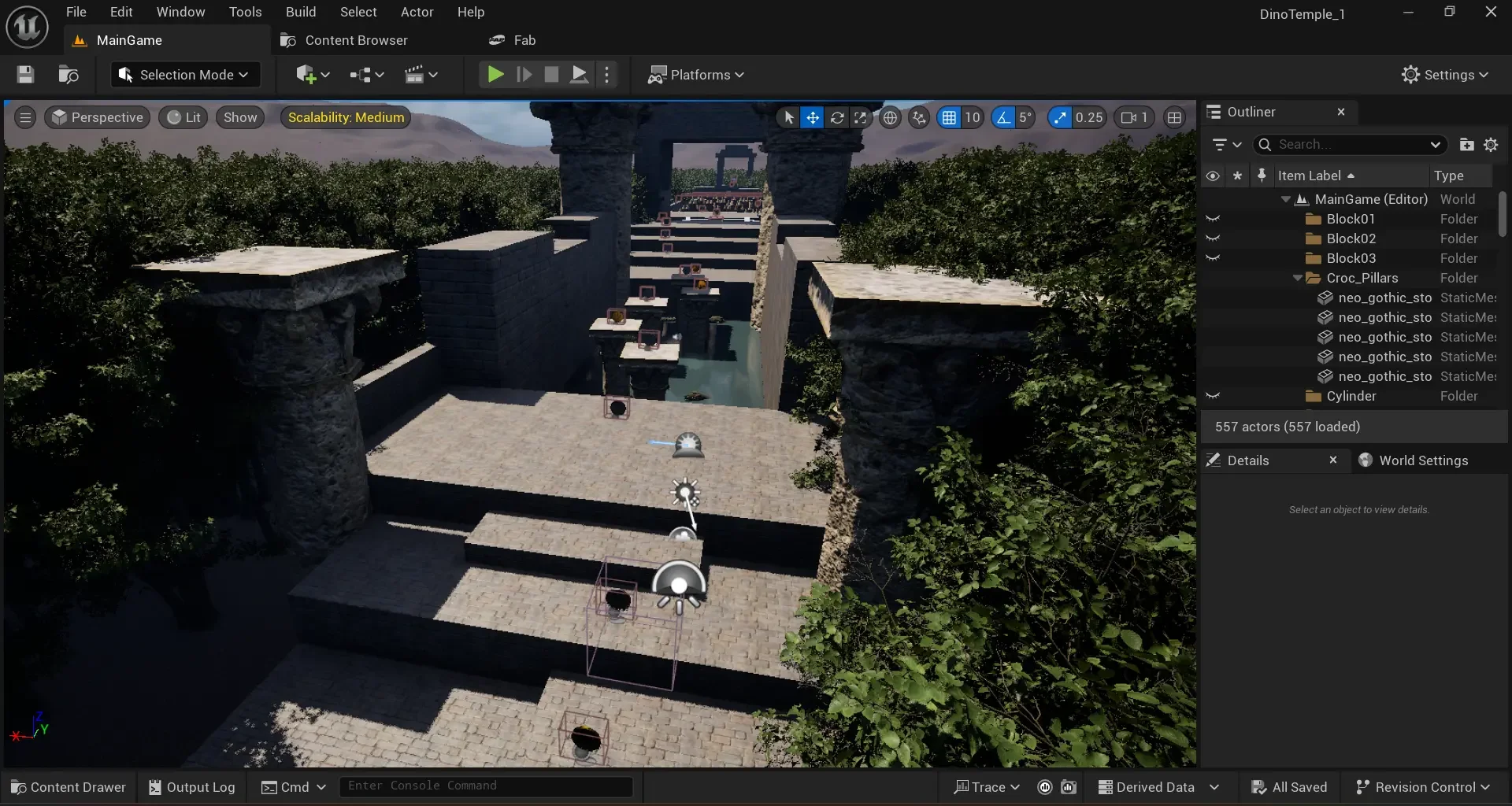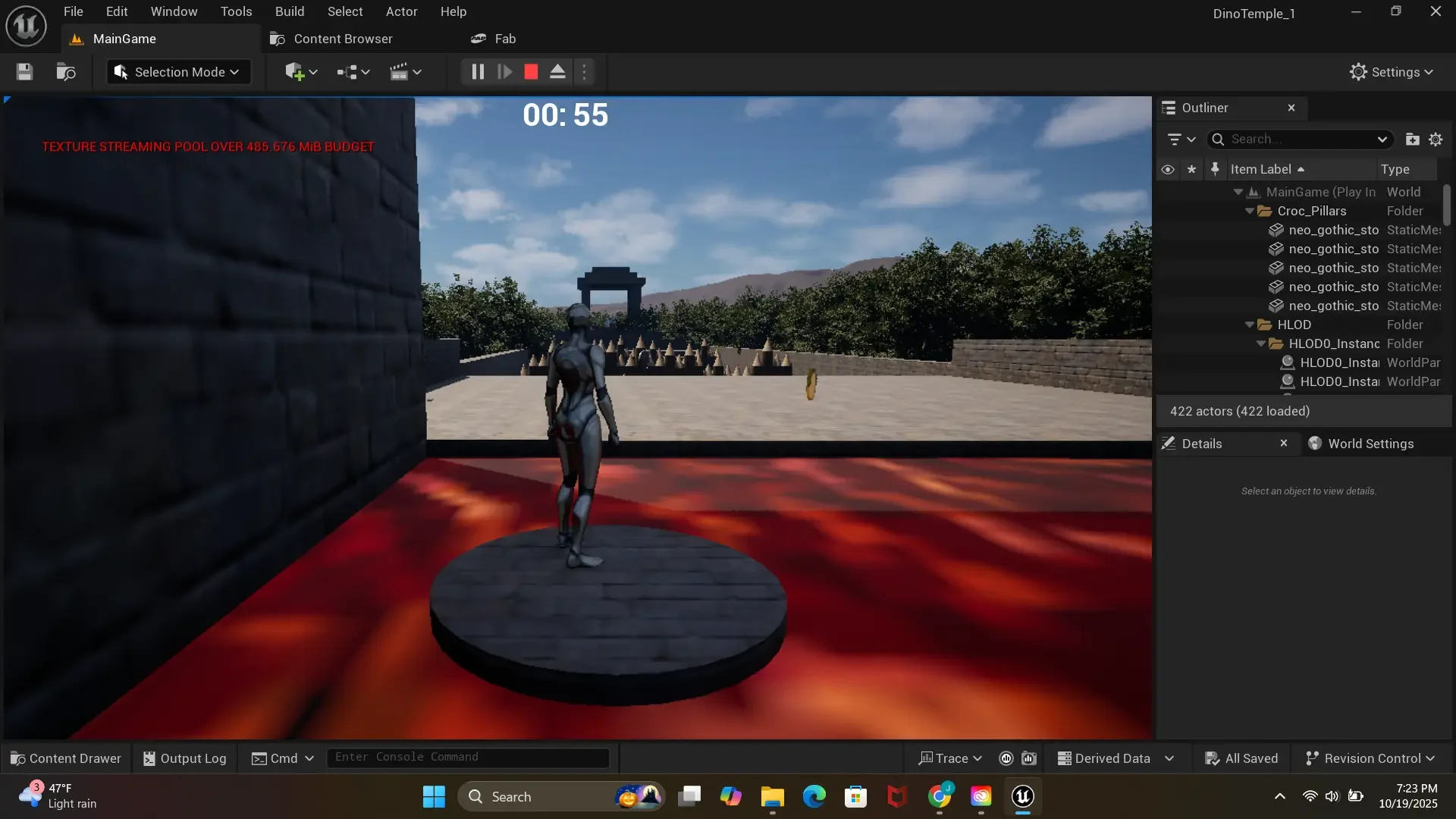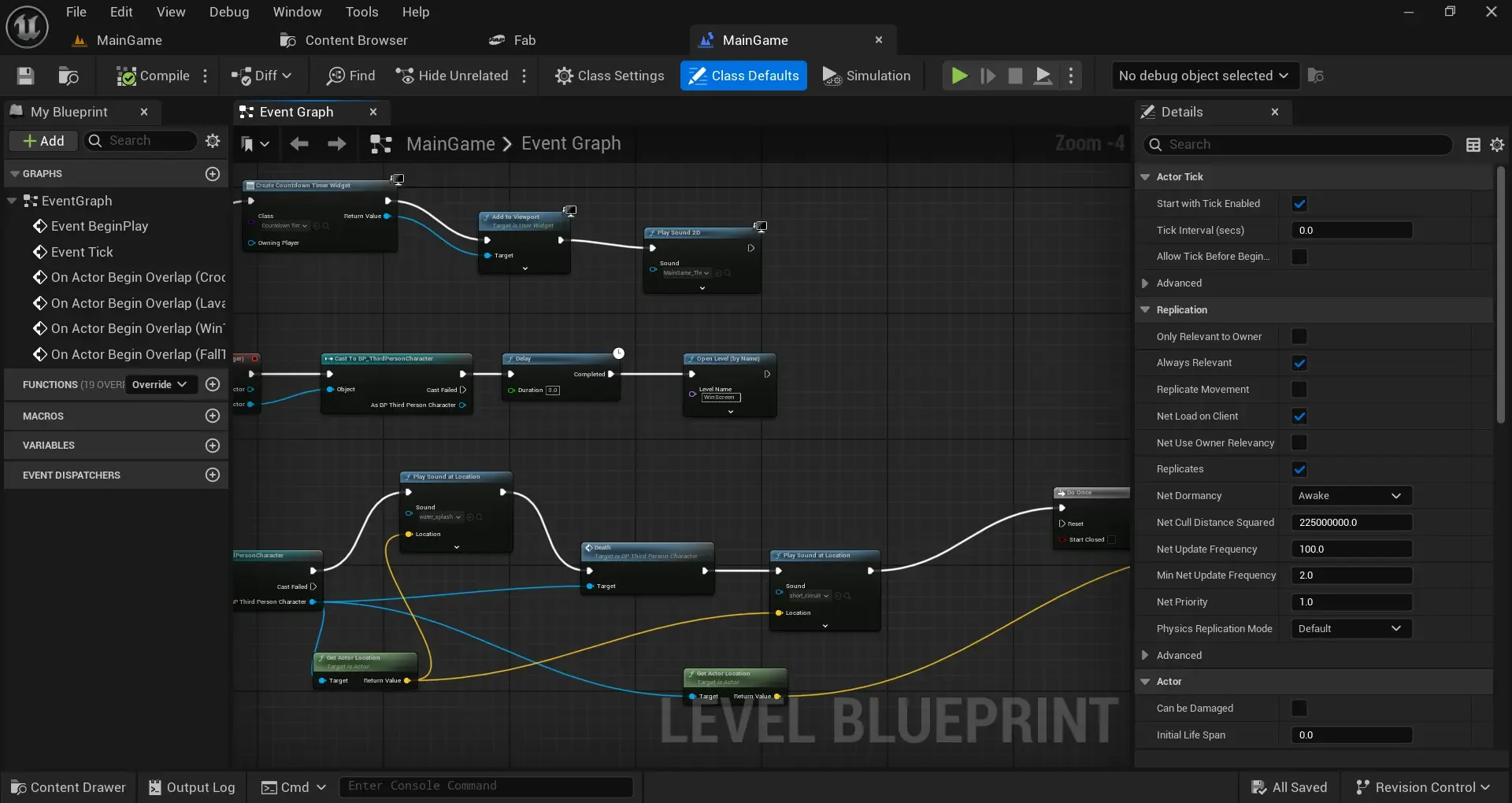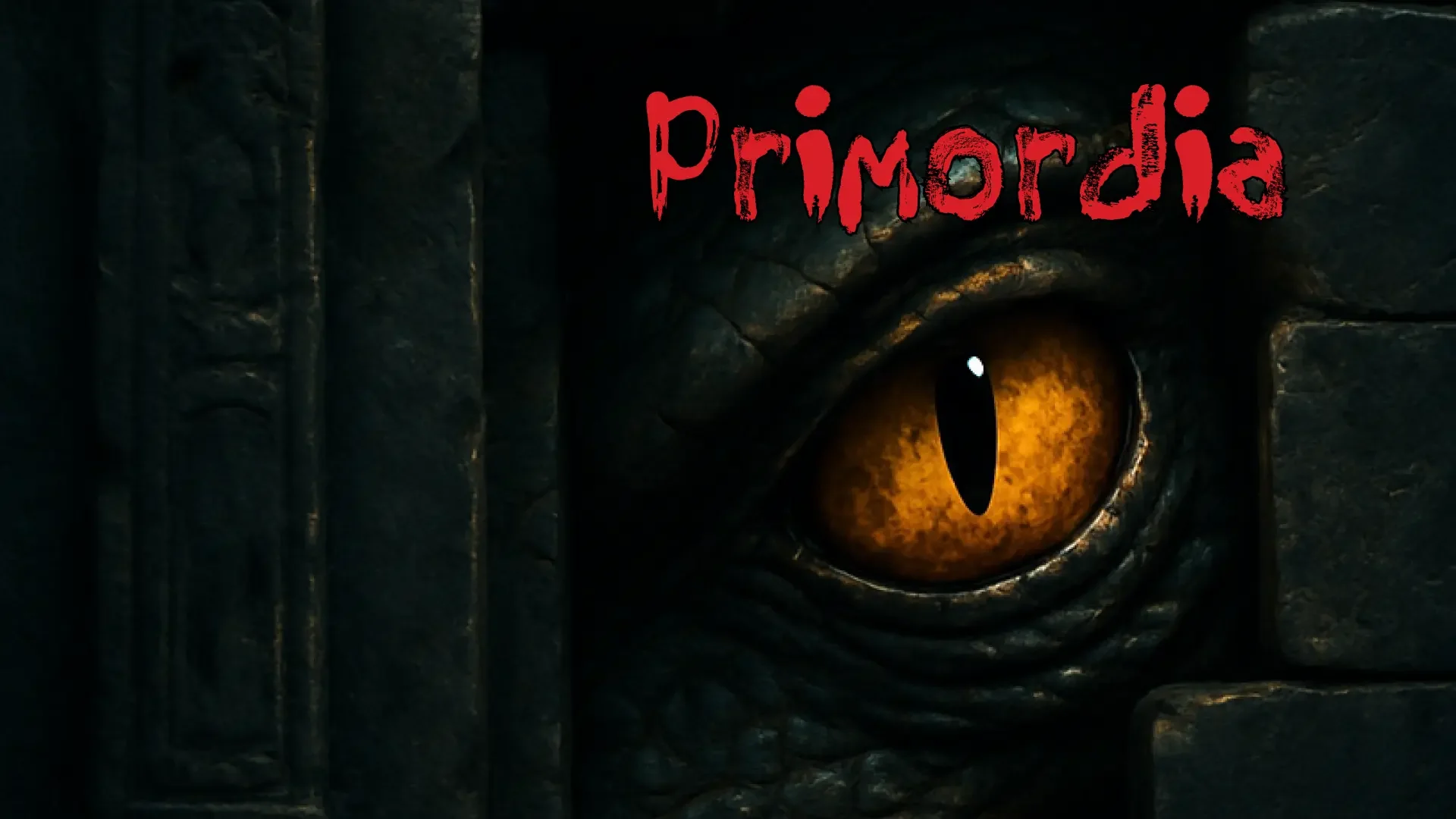Primordia, a short, 3D platformer demonstration created in Unreal Engine
The Design Brief
In IMS 213, Intro to Game Development, our final assignment was to create a short 3D platformer level utilizing Unreal Engine 5. This game level would need to incorporate 5 essential mechanics: object collection, obstacle avoidance, a time limit, timed movement, a multi-planar course, and ordered action. All of this would require level building within Unreal, as well as the utilization of blueprints to code our gameplay mechanics.
The Concept
When putting together the concept of my level, I took a heavy amount of inspiration from the classic 3D platformers of my childhood, such as Crash Bandicoot, Ratchet and Clank, and Banjo Kazooie. These platformers tend to incorporate compact level design, with collectible objects, and easy-to-understand gameplay mechanics. It was important that my demo level possessed all of the necessary components required by the assignment, whilst also being compact enough to be completed within a reasonable time frame.
I sketched out a rough sequence of how the level would be constructed, including all of the essential gameplay mechanics needed. I also established the general tone and environment of the level, which would be a homage to classic adventure media such as Indiana Jones, with the player running through a jungle temple to collect treasure while avoiding deadly obstacles and hungry wild beasts. The project would need a name, and so Primordia was created in reference to the rough, wild aesthetic of the game.
The Process
The initial phases of drafting for Primordia came in the form of whiteboxing, using basic geometric shapes in order to layout the level’s topography and ensure that platform spacing was viable for gameplay. This was a vital part of the design process, as it would inform how I would place all of the proper elements within the level.
Once the whiteboxing was completed, there came the task of developing the actual environment and adding the props. This would complete the aesthetics of the level, turning the demo from a void of white geometry to a proper jungle temple. However, the truly vital portion of the development process would come in the form of using Unreal’s embedded blueprint system in order to code the essential gameplay mechanics.
Utilizing and teaching myself how to use Unreal’s blueprints was a difficult, yet highly rewarding task. Using blueprints allowed me to incorporate mechanics such as death, fall damage, hitboxes on obstacles, scorekeeping, and a time limit that made the demo more than just an exercise in mechanics, but rather a playable model with real stakes embedded in its core.
One of the most important uses of blueprints was utilized for the lava pits, wherein a pressure plate must dynamically respond to the player’s hitbox in order to activate the movement of a platform: this platform was then required to allow the player passage over the pit. The prototype was also thoroughly play-tested with others in order to ensure its functionality.
The Reflection
Primordia was a monumental stride in regards to game design for me. I had no prior experience with Unreal Engine prior to the semester that I took this class, which ultimately meant that as I developed this prototype, I was also teaching myself a brand new, professional-grade software. In spite of this hurdle, I still found the creation of Primordia to be a very enjoyable endeavor, as it pushed me out of my comfort zone.
This project contrasted with a lot of my other work in the sense that functionality took priority over presentation. Our professor repeatedly stressed that how the prototype looked was irrelevant, and instead how the prototype functioned mechanically was what mattered most. This forced me to utilize a different part of my creative toolbelt, as I was now designing a tool predominantly for use.
I feel that Primordia marks a valuable checkpoint in my history of creative work, being my first ever properly developed, video game demonstration, which I could further refine or edit in the future if I so chose.


